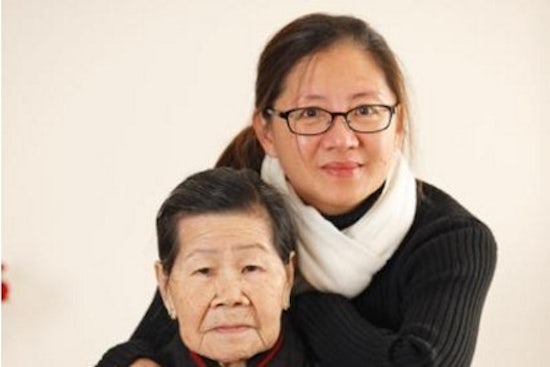Reaching out to Chinese carers
Since migrating from Malaysia in 2010, Wantirna South mother of two, Sharon Lee, has struggled to find culturally appropriate and accessible carer support.

Since migrating from Malaysia in 2010, Wantirna South mother of two, Sharon Lee, has struggled to find culturally appropriate and accessible carer support.
“Because we were new to the country and because of our background, it was quite difficult to get help. The language barrier is the most crucial as my mother-in-law, whom I care for, doesn’t speak English, only Cantonese. There is support out there but we didn’t know where to get it. It’s quite frustrating – I’d called many places and been turned down for support.”
Ms Lee is now one of many carers and frail aged older people accessing new programs and services targeted for people from the Chinese community run by Villa Maria’s White Road Activity and Respite Centre in Wantirna South.
She said without the vital respite from her caring role, and weekly social activities for her mother-in-law, Lin Hou Hong, 83, she would find it difficult to cope. Ms Lee also cares for a son with a disability.
“The Tuesday my mother-in-law is at White Road is when I can have time to recharge my batteries. I like the peacefulness and it gives me time to reflect.”
Ms Lee recently went on an overnight retreat organised by Villa Maria with other carers.
“It was really relaxing and good to speak with other carers about our problems and other supports we could get.”
While Villa Maria has long provided support to hundreds of carers across the eastern region through short term case management, respite, social support, education and allied health support, it is the first time the organisation has specifically targeted people from the Chinese community.
A carers function for Chinese residents across Knox, Whitehorse, Manningham, Monash – held in partnership with Rejoice Community Centre last November – saw more than 40 people attend.
In Knox, people of Chinese ancestry are within the top five resident groups at 7.6% and Victoria’s population is also rapidly ageing, resulting in increased demand for aged care services and carer support.
Angela Ng, team leader at White Road, said the larger than expected attendance and feedback from carers became the catalyst for Villa Maria to begin specific support services for Chinese carers and their loved ones.
Ms Ng said carer support and services were a new concept to Chinese people, as it is not a commonly acknowledged role in their society.
“Generally, husbands, wives and children who care for their loved ones who may be frailaged, have dementia or a disability look upon the role as their obligation and not something they should get support for. Generally speaking, for example, children who care for an older parent may feel uncomfortable to access respite to go out and do their shopping or just have a short break, because it means they’re not being a ‘good child’,” she said.
China’s ‘one child policy’ also exacerbated stress for carers, who are generally the only adult child within a family who can care for their parent.
“We need people to know there are many services out there that are keen and happy to support the carers because their role is so important in order to sustain the longterm wellbeing of the person they are caring for.”
In March, White Road established a planned activity group providing around 25 older Chinese people with social opportunities and valuable respite for their carers.






















